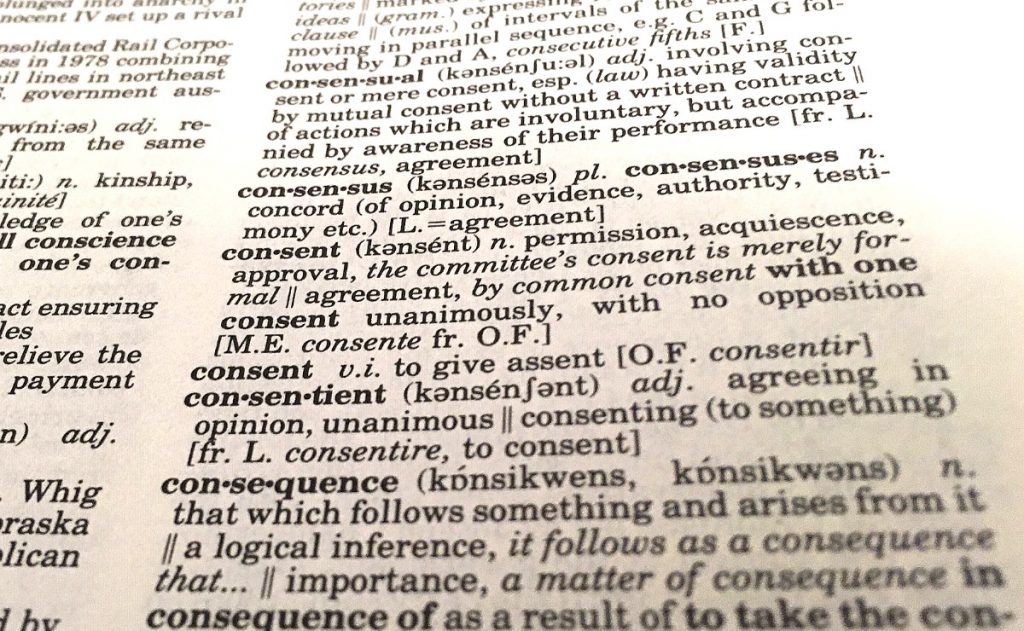
By Lindsay Street, Statehouse correspondent | What does it mean to say “yes” to a sexual act? A bipartisan group of lawmakers in the House wants to answer that question clearly in state law.
But first they have to clear a big hurdle: getting a hearing in the House Judiciary Committee.

“We have nothing right now in South Carolina that defines consent at all and everyone is walking around with their own definition,” Lancaster Democratic Rep. Mandy Powers Norrell said. “We have seen it litigated. We’ve seen people say, ‘I thought she wanted to have sex’ as a defense in rape cases … Every state should clearly define what it means to consent to sexual activity in that state.”
Only half the states in the nation have a definition of consent, according to Rape, Abuse and Incest National Network.
The S.C. Coalition Against Domestic Violence and Sexual Assault, a coalition that aids domestic violence and sexual assault survivors, also supports defining consent just to make everything crystal clear
“The whole conversation around consent as it pertains to policy is fairly recent. This is something a lot of states are grappling with,” Executive Director Sara Barber said. “South Carolina always seems to be one of the last to get on board with having policies that make our culture safer for women (and other victims).”
Barber said this bill is a small but important piece in changing the state’s culture toward women and victims of sexual violence and domestic violence.
“Laws or policies tell us what a society thinks is important or what is acceptable behavior so a bill like this could aid in doing that. We have to recognize that to reduce sexual violence in our culture its going to take an effort on multiple fronts,” she said.
Introduced Jan. 31 by Norrell, House Bill 3829 would define consent as “words or overt actions indicating freely given agreement to have sexual intercourse or sexual contact,” and that lack of consent can be determined through words or conduct. The bill also states that previous consent for sexual acts does not determine future consent.
Currently under S.C. law, the state recognizes that a person that has a developmental disability or mental incapacity cannot give consent to a sexual act. It also recognizes that a person cannot give consent while unconscious or intoxicated.
Educating South Carolinians on a “no-brainer”
Having a definition of consent is two-fold for victims’ rights advocates: it would help with educating the population on what it means to consent, potentially warding off any non-consensual acts. Having a clear definition also would give prosecutors greater leverage in proving rape.
Norrell serves as vice chair of the Judiciary Committee where the bill has languished without a hearing. She said the committee has had other priorities but that she has been promised by Chair Peter McCoy, R-Charleston, that a hearing would happen once her bills on consent and other sexual violence are wrapped into an omnibus package on rape victims’ protections. McCoy did not respond to several phone calls seeking comment for this story.

“Everything is stuck in Judiciary,” said Charleston Republican Rep. Lin Bennett, a co-sponsor. “I don’t know what his plans are this year but I hope (consent is) on his list … It’s a no brainer. It’s the right thing to do.”
House Speaker Pro Tempore Tommy Pope, R-York, has also co-sponsored the bill. He said there is no reason for the state not to have this definition in the books, but that it will take some pressure on Judiciary to get it heard during a jam-packed session and then addressed in both bodies.

Charleston Democratic Rep. Marvin Pendarvis, another co-sponsor, agreed that more pressure is needed.
“Nothing moves in Columbia until we muster up the support,” he said. “The bills that have the most amount of noise behind them are the ones that move the quickest.”
Norrell said she’s frustrated but won’t force the issue by demanding a hearing. She will continue to work on the bills and make requests that they are heard, she said.
“It seems to me that sexual assault should be a priority. We have big gaping holes in our law. We should fix those as soon as possible,” she said. “We should send a message to our citizens that preventing sexual assault, and punishing sexual assault is a priority in this state.”
- Have a comment? Send to: feedback@statehousereport.com















 We Can Do Better, South Carolina!
We Can Do Better, South Carolina!